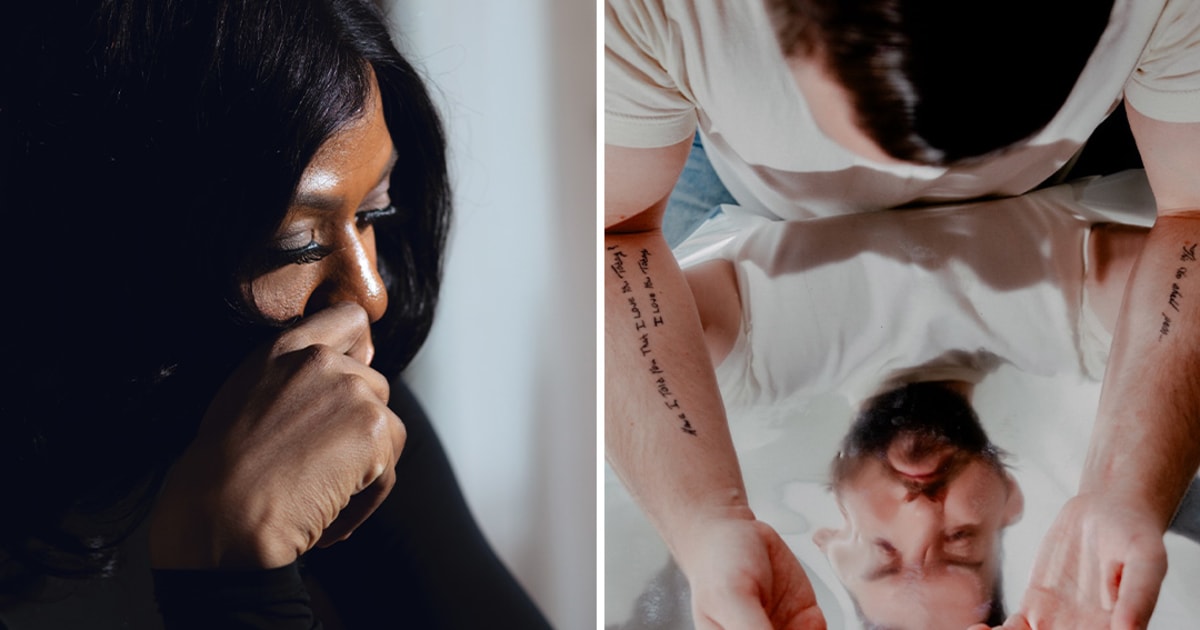Swift-Godzisz is among the 1 in 3 adults in the United States who have suffered from religious trauma at some point in their life, according to a 2023 study published in the Socio-Historical Examination of Religion and Ministry Journal. That same study suggests up to 1 in 5 U.S. adults currently suffer from major religious trauma symptoms.
Religious trauma occurs when an individual’s religious upbringing has lasting adverse effects on their physical, mental or emotional well-being, according to the Religious Trauma Institute. Symptoms can include guilt, shame, loss of trust and loss of meaning in life. While religious trauma hasn’t officially been classified as a mental disorder in the Diagnostic and Statistical Manual of Mental Disorders (DSM), there is debate among psychiatrists about whether that should change.
Experts say LGBTQ people — who represent more than 7% of the U.S. population, according to a 2023 Gallup poll — experience religious trauma at disproportionate rates and in unique ways. Very little research has been done in this field, but a 2022 study found that LGBTQ people who experience certain forms of religious trauma are at increased risk for suicidality, substance abuse, homelessness, anxiety and depression. And as political animus toward the LGBTQ community intensifies ahead of the 2024 presidential election, many queer people say their pain is resurfacing.



I’m an atheist, but saying every single person who is hostile towards religion has been traumatized by it is not a true statement. One single counter-example blows up your whole point. Arguments that say “every single person” are usually a bad idea.
How about the vast majority? Maybe, but even then, we have no numbers, this is another losing point to make. It might be true, but we don’t have enough info to back this assertion up enough to change anyone’s mind. It is easy for a detractors to roll their eyes at this.
The best you can hope to say without making a fallacy is that a disproptoinate number of anti-religious people have experienced religious trauma. I’d even argue the same for the extreme religious supporters too if they were receptive to the first point.
You have to meet the cognitive dissonance of others half-way or you might as well be talking to a wall. Overstating your point where it is no longer even a logical statement just hurts your own efforts.
It wasn’t a statement I made, but “a sizable proportion of people hostile towards religion has been abused by it, and has perfectly legitimate reasons for their positions”, which is my own position, is quite defensible.
I’ll add here, I’m not an atheist and I have religious trauma. Don’t confine yourself to those who are hostile to religion or you wind up with a narrow view of the damage done and preselect a solution.
Atheism to sufferers of religious trauma is an extremely healthy first step, and an extremely healthy final step, but it doesn’t need to be either or both.
When you introduce the concept of religious trauma, some, especially those in an abuser-victim state will look to this as an attempt to dissuade them from any religion, and it’s fine to try to do that, I personally dislike proselytization of any form, but regardless, they won’t be open to reevaluating their relationship with their beliefs, including the ones actively harming them. I don’t personally care if the victims leave religion entirely or even the general religion. If we can make people who are perpetuating the cycle of abuse through their religion reevaluate and stop that’s what I want.